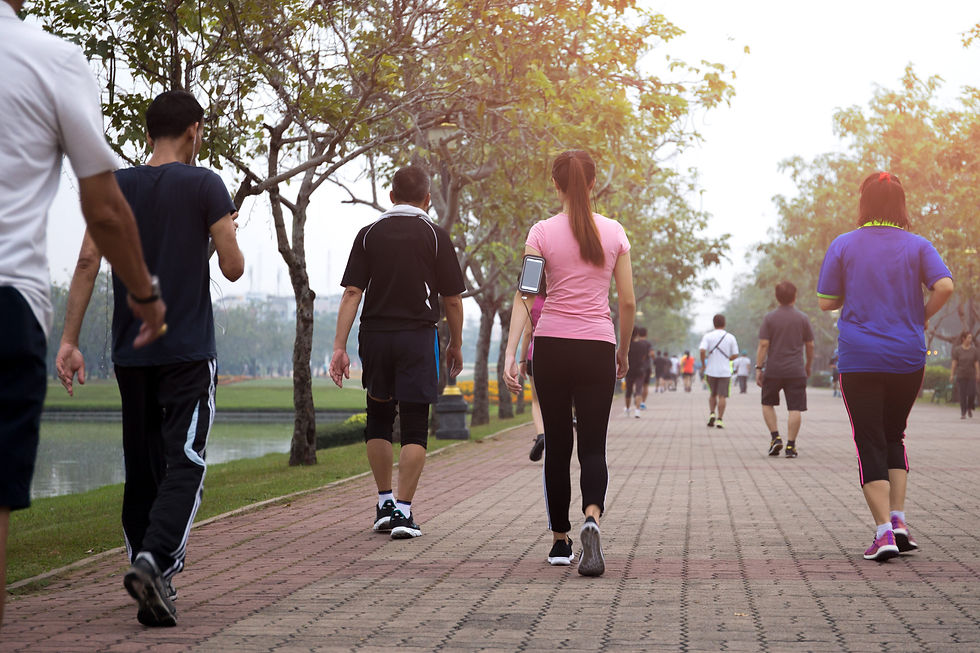THE MIRACULOUS BENEFITS OF DAILY WALKING
- Joshua Patrick

- Nov 1, 2022
- 2 min read
Most people have popularized running or jogging as the premier cardio activity, but the most effective form of simple cardio is Walking. The Obesity prevalence in the U.S. from 2017-2020 was 41.9% (Pre-Covid). With that being said most people don't have the physical fitness to maintain a consistent running schedule. This leaves us with walking, walking is one of the easiest forms of exercise that you can participate in. That also makes it a lot less interesting for the average person. But intentionally walking for 30 minutes daily has a world of benefits that will elevate your mental & physical health tremendously.

HEART HEALTH
Walking at least 30 minutes daily 5 days a week (150 minutes a week) will reduce your risk of cardio vascular disease tremendously according to The American Heart Association.
IMMUNITY
One study tracked 1,000 adults during flu season. Those who walked at a moderate pace for 30 to 45 minutes a day had 43 percent fewer sick days and fewer upper respiratory tract infections overall. Their symptoms were also lessened if they did get sick. That was compared to adults in the study who were sedentary.
ENERGY
Going for a walk during your mid-day crash might be more effective than grabbing a energy drink. Walking increases oxygen flow through the body. It can also increase levels of cortisol, epinephrine, and norepinephrine. Those are the hormones that help elevate energy levels.
METABOLISM
Walking several times per week can effectively increase your base metabolic rate, which is how fast your metabolism works when you are resting. The "Journal of the American Dietetic Association" found that women who walked for nine hours per week experienced a lower body-fat percentage and an increased base metabolic rate. The participants in the study who maintained a sedentary lifestyle (of one hour of walking per week) did not experience the same benefits. Brisk walking for five hours per week will provide similar metabolic benefits in less time due to the increase in pace and energy.
MOOD
Walking can help your mental health. Studies show it can help reduce anxiety, depression, and a negative mood. It can also boost self-esteem and reduce symptoms of social withdrawal. To experience these benefits, aim for 30 minutes of brisk walking or other moderate intensity exercise three days a week. You can also break it up into three 10-minute walks.





Comments